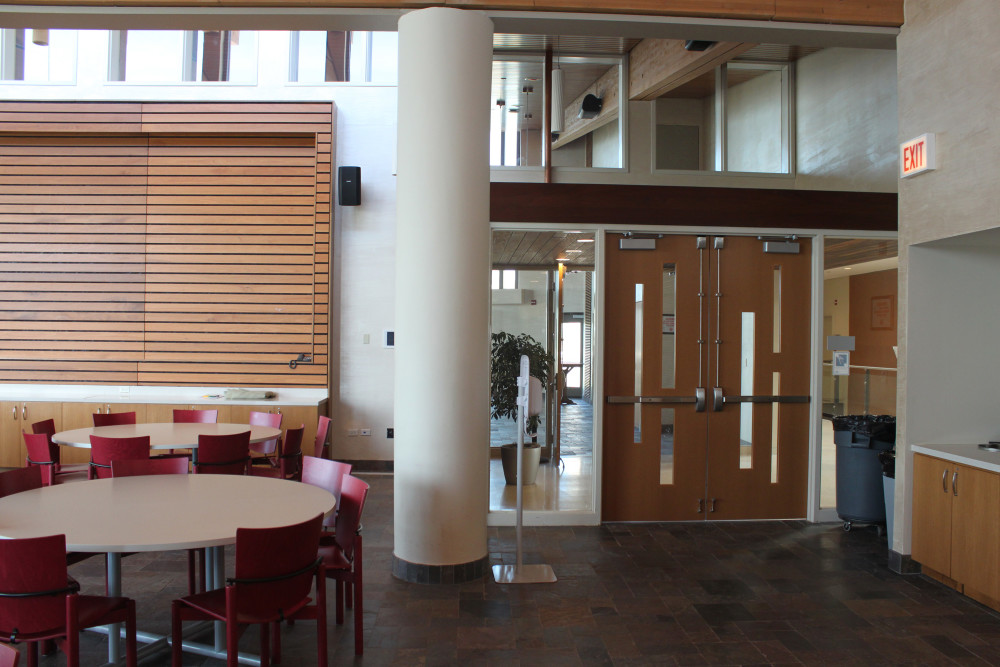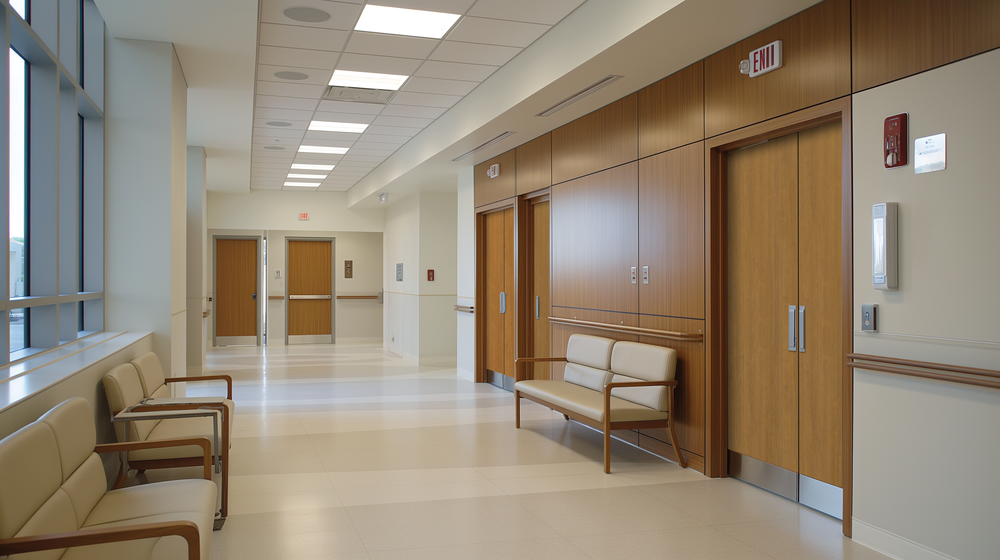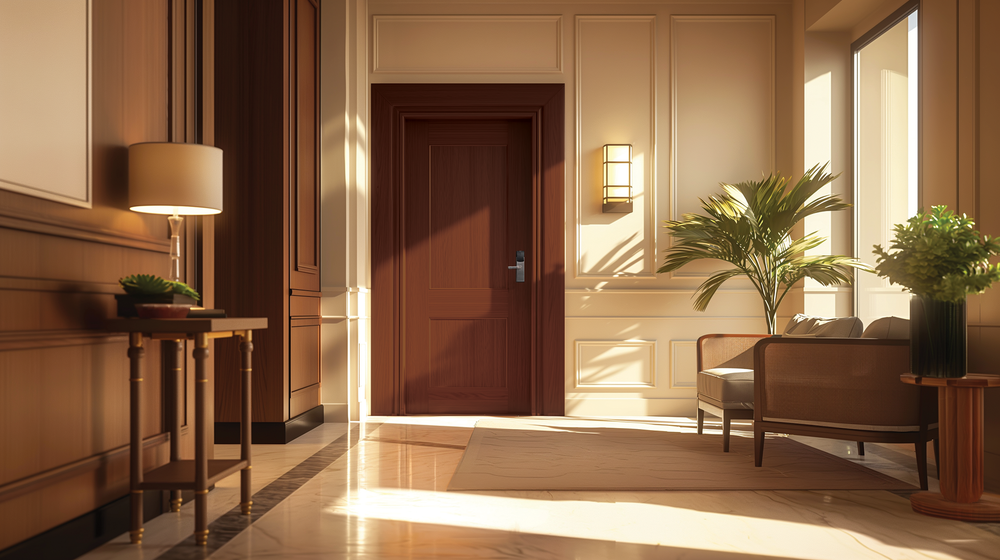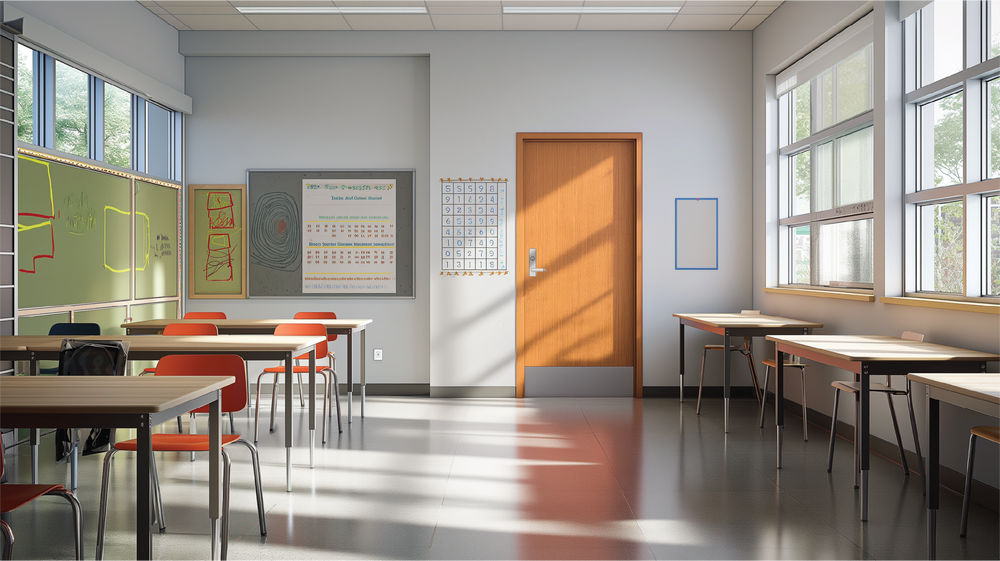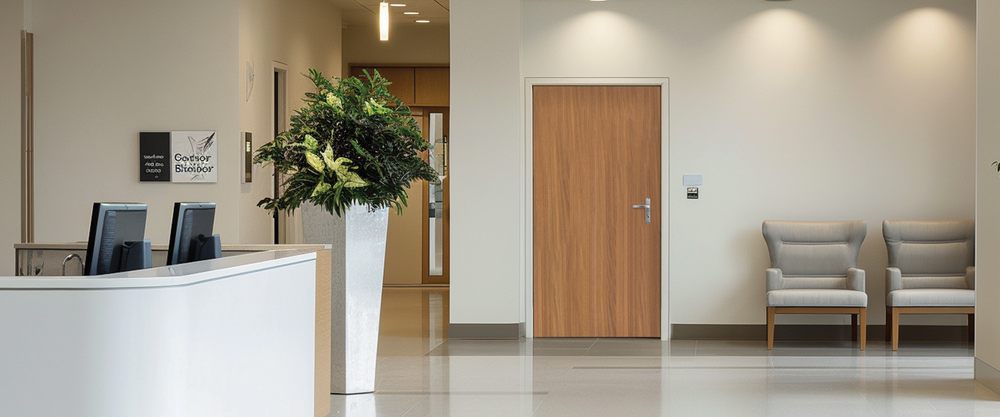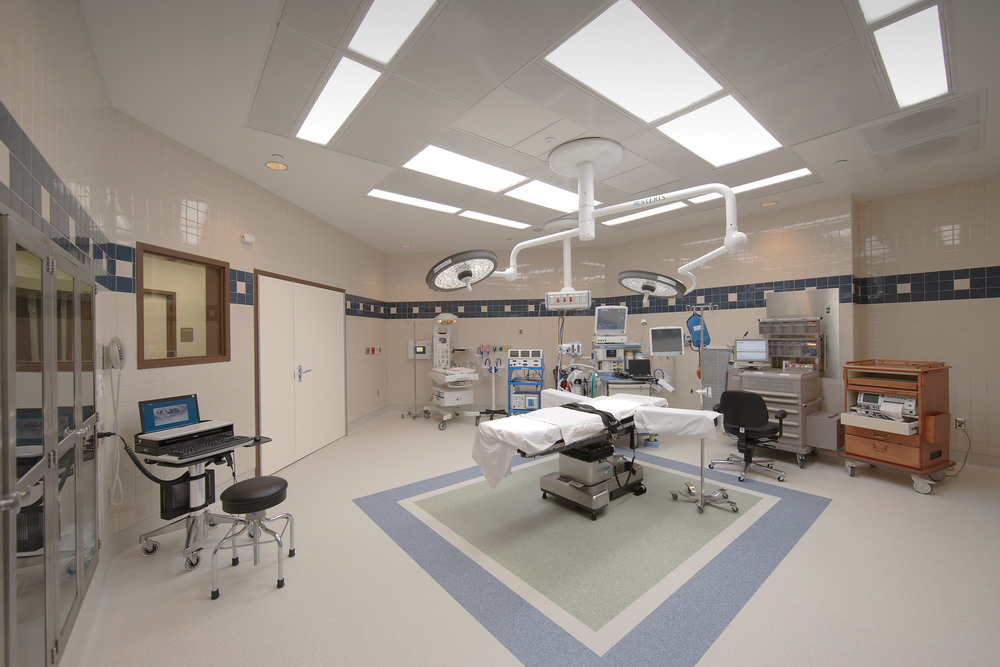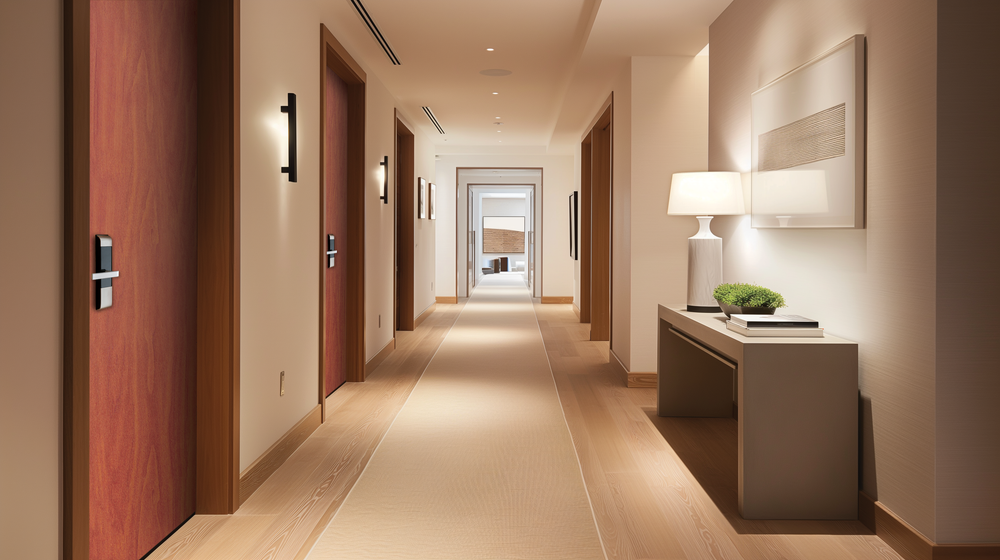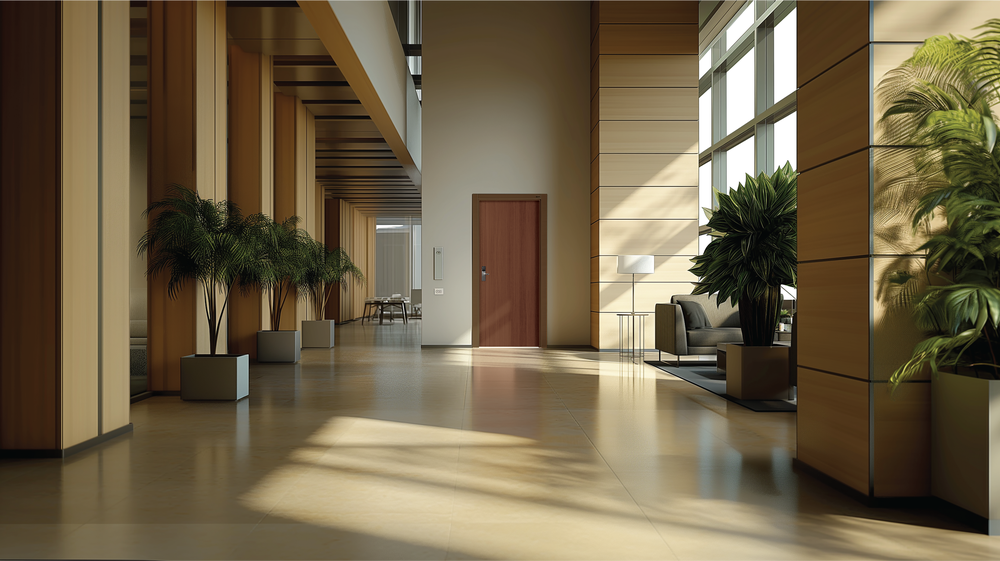
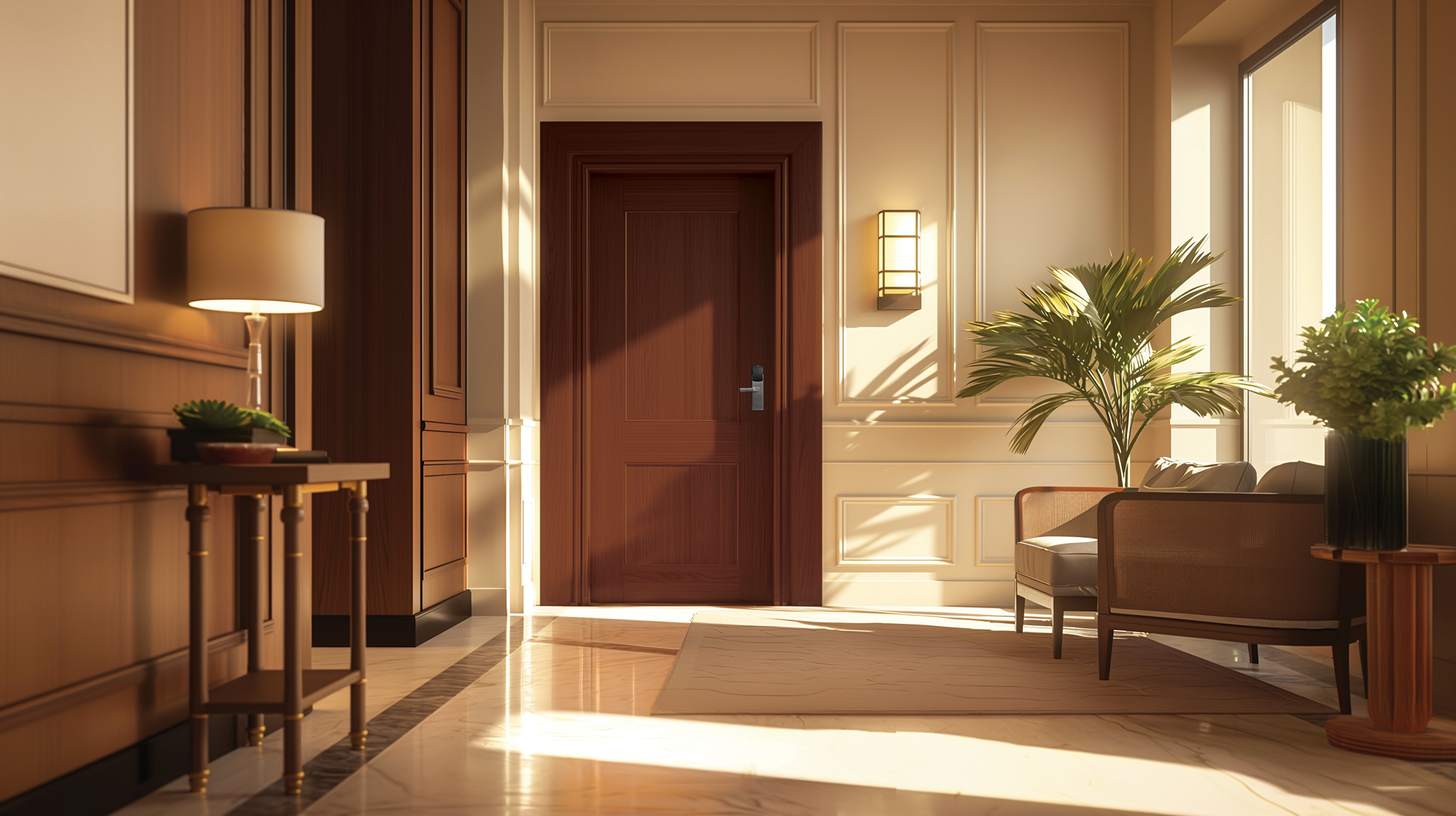
Why Acoustics Matter in Healthcare, Hospitality, Education, and Office Design
Designing for performance starts with designing for peace and quiet.
While acoustics are important in any commercial environment, certain spaces demand an even higher level of sound control. Healthcare facilities, schools, hotels, and offices each present unique acoustic challenges — and opportunities to create better spaces for healing, learning, focus, and rest.
Healthcare: Supporting Healing Through Quiet
In hospitals, excessive noise can interfere with patient recovery, increase stress levels, and impact satisfaction scores. But the effects aren’t limited to patients — noise can also affect staff performance and focus, as well as violate HIPAA privacy guidelines. With medical equipment running 24/7 and conversations happening in every hallway, healthcare buildings must be designed with acoustic-rated materials, especially in patient rooms, offices, chapels, and corridors.
Hospitality: Reducing Guest Complaints
For hotels, quiet equals comfort. Guest expectations are high, and noise — whether from neighboring rooms, hallways, or service areas — can quickly lead to dissatisfaction. STC-rated doors play a major role in improving the guest experience, especially at room entries, connecting doors, and areas that separate front-of-house from back-of-house operations. In many cases, controlling sound is as important to luxury as high-end finishes.
Education: Enhancing Focus and Learning
Noise control in schools is about more than comfort — it directly affects student performance and comprehension. With so many hard, reflective surfaces and potential noise sources (like HVAC systems, hallway activity, or even neighboring classrooms), acoustic-rated doors and thoughtful space planning become essential. Libraries, music rooms, dormitories, and classrooms all benefit from improved acoustic design, and several building standards include specific requirements for educational acoustics.
Office: Supporting Productivity and Privacy
With the rise of open-plan workspaces and coworking models, acoustics have taken center stage in office design. Excessive noise contributes to stress, distraction, and reduced job satisfaction — and studies show it can even influence whether employees stay in a role. Acoustic-rated doors, along with other treatments like ceiling panels and desk dividers, help reduce disruptions and protect speech privacy in conference rooms, executive offices, and shared work areas.
Closing Thoughts
While every building benefits from sound control, some environments need it more than others. In healthcare, hospitality, education, and office spaces, acoustics shape how people heal, think, sleep, and work. By incorporating STC-rated door systems and planning with sound in mind from the start, architects can improve both the function and experience of the spaces they design.
